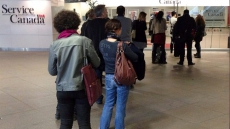If NDP-Greens were forced to make a choice, they would rather kiss the behind of authoritarianism than the mouth of democracy.
A democratic way of holding referendum should have been at the time of municipal elections, which would have guaranteed higher voter turn-out and lower costs. However, the governing coalition is neither interested in higher voter turn-out nor lower costs to taxpayers. That is why they have chosen a mail-in ballot right after the municipal elections.
Attorney General David Eby is in charge of luring and confusing people to change the electoral system to produce permanent NDP-Green governments in BC.
First, he ignored the public’s plea for simplicity and proposes three convoluted, complicated PR systems — two of which don’t exist anywhere in the world. Then he effectively gagged free speech by decreeing a campaign period more than twice as long as 2015’s 78-day federal campaign that thoroughly exhausted voters.

He has also ignored BC’s own traditions and conventions on referenda. In 2005 and 2009, the referenda on question for electoral system change was part of normal provincial election time and the threshold was 60 percent, which was also suggested by the Supreme Court of Canada on Quebec’s secessionism question to the federal government in its reference question. David Eby’s desire to change the electoral system with simple majority of fifty percent plus one flies in the face of established conventions in democracies on deciding major questions with higher thresholds.
Despite these major deviations, the government has not been able to explain why a system that has worked for us in the past 150 years is no longer desirable. Despite losing the ability to chose local MLA’s, there are a number of issues for minorities to be aware of the dangers posed by PR electoral system.
A number of academic studies have pointed out the danger of the rise of xenophobic, anti-minority parties in countries with Proportional Representation, or PR. A smaller percentage of votes translating into seats in legislatures has helped fringe elements gain bigger platforms.
Today, we face terrorism and refugee crises, driving a populist backlash. There’s an obvious historic parallel: the interwar years in Europe.

In the midst of a terrible economic crisis, and rising nationalism in the wake of the Versailles treaty, the systemic instability inherent in PR became a source of danger to democracy. But somehow, only the countries with Proportional Representation encountered major political instability.
Fifteen European democracies with PR systems collapsed and gave rise to authoritarian governments. Germany was a prime example, with repeated failures to produce a stable government. The 14 years of the Weimar Republic saw 20 coalition governments – ultimately ending in the Nazi party taking control.
Not a single democracy with First Past the Post, or FPTP, suffered a similar fate. The danger to democracy was strongly connected to, and enabled by, the instability produced by proportional representation.
What lessons can we draw?
Both FPTP and PR demand the art of compromise and coalition building. The key difference is when that happens.

First Past the Post encourages coalitions to form before elections. To capture a large number of seats, parties need a bigger umbrella of different electoral interests and social groups. Thus, they must reject smaller, xenophobic hate-oriented groups and instead develop a broader, more inclusive message for electoral victories.
On the other hand, PR focuses on forming coalitions after elections. With even a small percentage of votes, fringe groups can gain seats, and a bargaining chip.
Forming coalitions often takes a long time. In 2011, it took 541 days to build a coalition in Belgium. Imagine no government in B.C. for eighteen months – and what that would do to our economy.
In recent times, European nations with PR system have witnessed the rise of anti-immigrant and xenophobic groups similar to the experience of the inter-war period. These fringe parties mobilize people on narrow sentimental politics of hatred. In the most recent German elections, the ultra-right Alternative-For-Germany party got nearly 13 per cent of the vote share at the national level, entrenching it as major force.
Minorities in BC must keep in mind that history and comparative studies of current electoral systems both show that the stability of First Part the Post is healthy for peace and social harmony.

It has helped Canada achieve greatness in for 150 years. Why abandon it now?
ABOUT THE AUTHOR
An ex-citizenship judge of BC and Yukon region, Dr. Shinder Purewal teaches Political Science at Kwantlen Polytechnic University.



